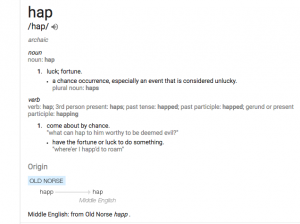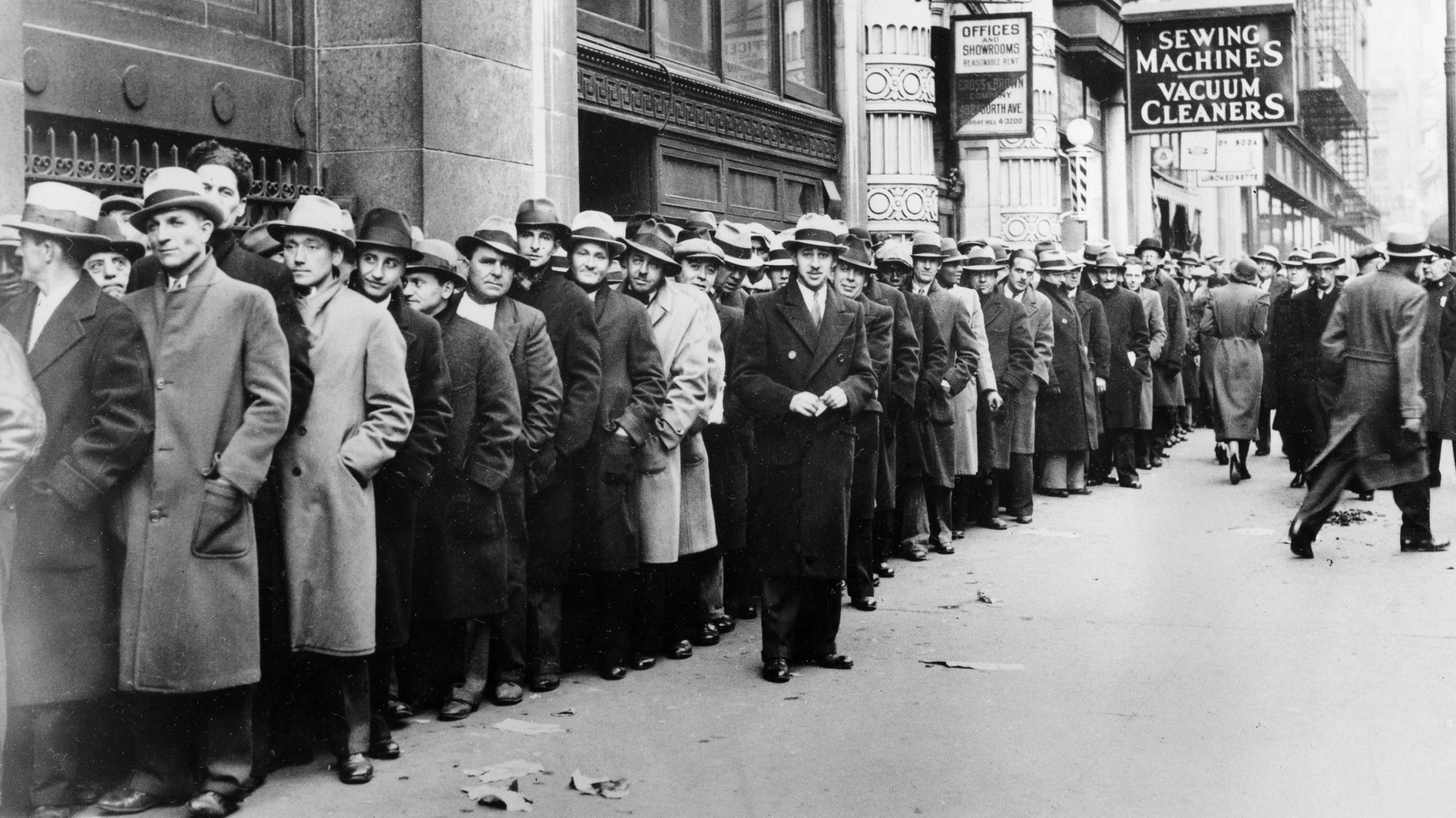Honestly, the very phrase turns my stomach. As if the one uttering the words, “I want to be happy” is actually saying something profound. Seriously, does the person think everyone else is walking around hoping for misery, but somehow, someway, this towering intellect has figured out that happiness is desirable? What an achievement.
 Of course, everyone would like to experience happiness, as often as possible. The word “happy” is derived from the Old Norse word, “hap,” meaning luck. So the word, at its root refers to circumstances that happen to break your way. It is not that you earned anything or worked for it. To be happy is simply to serendipitously find yourself in a good situation.
Of course, everyone would like to experience happiness, as often as possible. The word “happy” is derived from the Old Norse word, “hap,” meaning luck. So the word, at its root refers to circumstances that happen to break your way. It is not that you earned anything or worked for it. To be happy is simply to serendipitously find yourself in a good situation.
Without a doubt, this means that most people have no idea what they are saying. You cannot control luck. When people use that phrase, proclaiming that they “just want to be happy,” what they normally mean is something like: “I just made a decision, and it might be stupid, but it is what I want to do. And you are a big ole meanie, if you don’t support my ‘iffy’ choice.”
You know what? It really means that they are hoping to alleviate themselves of responsibility for the decision. Since happiness is based on luck, your decision has little to do with it. And if you made a bad decision, do not expect others to just say, “Oh, bless your heart. I just hope you are happy.” No, you should hope that our feedback is much more useful, giving you something to actually work with, besides hoping for the sun to miraculously shine down on you in your stupidity.
 Rather than being happy, I choose to be joyful. Now there is something over which I have some control. Our word “joy” traces its meaning back to Latin (via Old French) to the word “gaudere,” meanig “rejoice.” Let me give you an example of what I mean here. In Acts 5, we see the Apostles called in before the Jewish Sanhedrin. Wanting to kill the followers of Jesus, the council decided to play it safe and just beat them instead. Now consider how you would “feel” about that, if you were one of the beaten men. Would you be “happy”? Did they feel lucky, as the whip blows fell across their backs? Hardly. Yet, the scripture goes on to tell us how it went.
Rather than being happy, I choose to be joyful. Now there is something over which I have some control. Our word “joy” traces its meaning back to Latin (via Old French) to the word “gaudere,” meanig “rejoice.” Let me give you an example of what I mean here. In Acts 5, we see the Apostles called in before the Jewish Sanhedrin. Wanting to kill the followers of Jesus, the council decided to play it safe and just beat them instead. Now consider how you would “feel” about that, if you were one of the beaten men. Would you be “happy”? Did they feel lucky, as the whip blows fell across their backs? Hardly. Yet, the scripture goes on to tell us how it went.
…when they had called in the apostles, they beat them and charged them not to speak in the name of Jesus, and let them go. Then they left the presence of the council, rejoicing that they were counted worthy to suffer dishonor for the name. *Acts 5:40-41).
So these men were JOYFUL, even though their circumstances were severe. They did not make decisions in order to be happy. Rather, they made decisions that led to rejoicing. They were joyful. Can you imagine if the Apostles had acted like our modern snowflakes, doing things “just because I want to be happy”? Disaster for Christianity. Thank God, they were men and acted like it. They endured tough circumstances to do what actually needed to be done, even if it was hard. Even if it meant they missed out on some happiness.
Look, I have no problem with happiness. It is nice when things go your way, and you can smile and laugh about how life is proceeding. But this is no way to make decisions. Rather, work for joy. That lasts, regardless of circumstances. That is why the Apostle Paul can later report in Philippians 4:10-13:
I rejoiced in the Lord greatly that now at length you have revived your concern for me. You were indeed concerned for me, but you had no opportunity. Not that I am speaking of being in need, for I have learned in whatever situation I am to be content. I know how to be brought low, and I know how to abound. In any and every circumstance, I have learned the secret of facing plenty and hunger, abundance and need. I can do all things through him who strengthens me.
We should do likewise. Work hard and do what is right. Place your trust in God, and you can experience joy every day, regardless of the circumstances of your life. Joy is eternal. Happiness is a passing feeling. And for goodness sake, stop saying, “I just want to be happy.” That is setting yourself up for failure. Choose joy. You have control over that.










5
Happiness is related directly to lack of thought. That’s why Buddhist monks, in trying to obtain Nirvana, consider it ‘no mind’ or tha state of lack of thought… Thought itself is the definition of unhappiness.
The happiest people you will ever meet are those closest to no-mind. In other words, stupid. Animals tend to be very happy, measurably so, as any sort of cognitive questioning is outside of their grasp…
Leftists tend, on the whole, to be ‘happier’ than right wing. The reason? because regardless of their IQ, they can submerge their pain-causing cognition in the group goals of no-thought.
It is arguable that this may be why so many ‘intellectuals’ gravitate towards leftist thought… Because of their higher cognition, they are in more pain and thus are considerably more willing to discard their need to indulge in true thought. They therefore have a much higher cognitive POTENTIAL, but choose much more readily to throw that potential away… they are ‘happy’ with the lack of cognitive choice, no questions of morality, nor, honor, no questions of rightness or weighing the painful options of taking responsibility for making judgement calls… In fact, judgement calls or weighing morality is actively and socially discouraged.
leftism is a cult of happiness. As for me, I won’t accept happiness OR joyfulness. I’d much rather have ‘satisfaction’. The satisfaction of knowledge, the satisfaction of making decent judgement calls, the satisfaction of helping secure the legacy of my culture for the future… Happiness is for fools, because only fools can be happy.
Most people consider happiness, like love, to be a feeling. I read a book several years ago called “The Lost Virtue of Happiness”. In it, the author’s thesis is the happiness is not a feeling, but a virtue. And like all virtues, it has to be cultivated. The happiness of a successful life is achieved by hard work, discipline, and sacrifice. It’s not just a state of feeling that “shows up”.
Fake it till you make it?
Freedom from want does not always bring happiness. But people still think that this is the road to be on if one wants to be happy. I would much prefer to be contented in the LORD with my service toward Him. God gets the glory and I get the satisfaction of a job well done.
Fred–ya nailed it, Bro!
X-Ring bullseye!